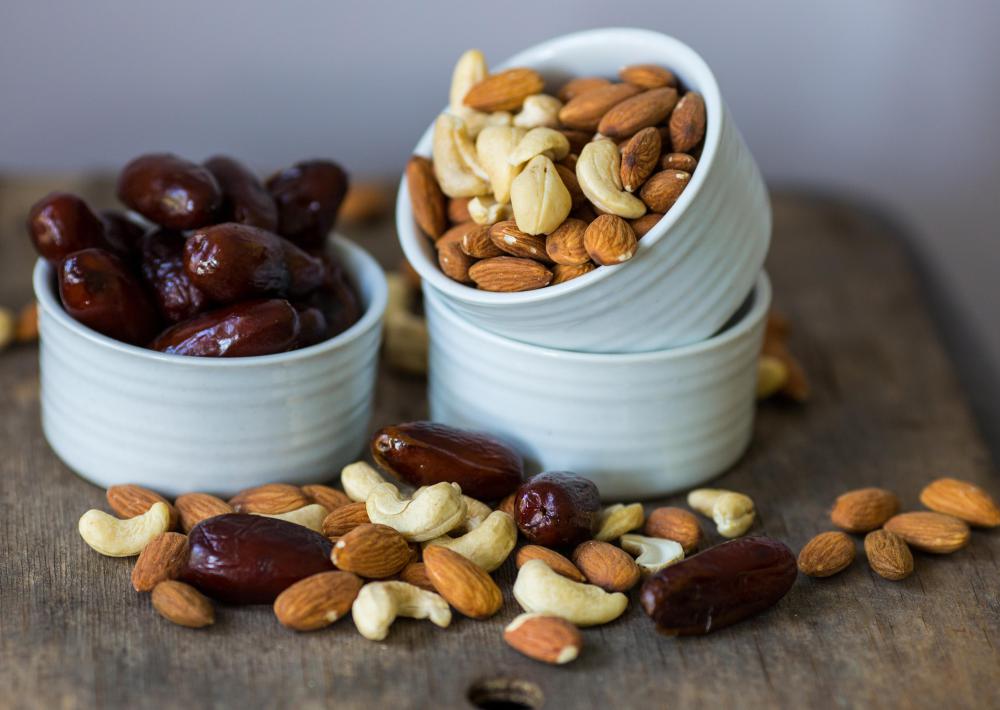At WiseGEEK, we're committed to delivering accurate, trustworthy information. Our expert-authored content is rigorously fact-checked and sourced from credible authorities. Discover how we uphold the highest standards in providing you with reliable knowledge.
What does a Dietary Aide do?
A dietary aide, also called a dietary or dietician assistant, makes sure a person is provided with the necessary nutrition to restore or maintain health and well-being. He assists dietitians in planning and executing programs highlighting necessary vitamins and nutritional elements. These programs may be prescribed by a physician for a patient who has undergone medical or surgical procedures and requires dietary restrictions. The plan may also be established for people interested in promoting healthier eating habits for better living and increased longevity.
Creating meals that are healthy and satisfying is challenging. A dietary aide helps the dietitian come up with food combinations, preparation techniques and presentations that inspire patients to eat and enjoy healthy food. This is often crucial for patients who are recovering from a disease or surgery. Other patients may need to be restored to good health that has been compromised by poor eating habits or an atmosphere that lacked healthy nutritional options.

A dietary aide is often involved in food preparation, as well as meal planning. He may have access to the kitchen staff and confer with the cook or chef on available ingredients and preparation options. Versatility is important when trying to please a person with little appetite or picky tastes.
Besides providing input on recipes and presentation options, a dietary aide is required to maintain accurate records. These documents normally contain details on the types of food served, preparation methods and portion sizes. Classification of the diet plan is included in the records and regularly includes categories such as soft, bland, solid and clear or full liquid. Other types of common diets prescribed by doctors and medical professionals include cardiac, diabetic and low sodium.

A dietary aide can find work in a wide range of settings. Hospitals are the most common places to secure employment, but other venues such as doctor’s offices and health-care facilities also offer opportunities. Additional settings that employ these aides include fitness facilities, schools, restaurants and food processing and development companies.

A fondness for helping people regain or retain their health is an important trait for these aides. Good organizational skills are helpful in planning and implementing diet plans. Attention to detail is crucial to properly follow recipes and adhere to health and safety guidelines when handling food and cleaning equipment and food preparation areas.
Becoming an aide requires completing courses in physiology, food preparation, biology, chemistry and nutrition. Many technical institutes, colleges and universities offer associate degree programs or certifications to become a dietary aide. To advance to a position as a registered dietitian, a bachelor’s degree is required.
AS FEATURED ON:
AS FEATURED ON:


















Discussion Comments
I've only interacted with a dietary aide at the hospital after my surgery. She helped me transition from a liquid diet to a regular diet slowly. I had colon surgery and I couldn't eat normally for some time.
@bear78-- You would be surprised!
Dietary aides are not chefs. They won't cook your food but they may give ideas on what to include and what the patient may enjoy. The goal is always to help the patient adjust to the required diet and make it a way of life, unless it's temporary.
For example, those with heart problems or high blood pressure often need a low sodium, low cholesterol diet. But they may have trouble adjusting to these changes. It's not easy to suddenly start eating drastically different. I'm sure you had the same kind of challenges after starting your diabetic diet.
The dietary aid can help make the transition easier. I had help from a dietitian and a dietary aide after I was diagnosed with gluten intolerance. The best part was that the dietary aide gave me a lot of practical handouts and recipes to use at home. He had recipes for gluten-free alternatives of my favorite foods. I really appreciated that, I use them all the time. So getting help from a dietary aide has definitely made my life easier.
Wanting to inspire people to eat healthy is a good idea but I don't think it will work in every case. I have a strict diabetic diet for example. It's very basic diet and very predictable as there are a lot of things I cannot have. It's usually along the lines of salads, vegetables, soup, limited red meat, dairy and restricted fruit and bread. There is no sugar, rice, white bread, sweets, high-glycemic fruits, no processed meats. How inspirational can one get with this diet?
Post your comments